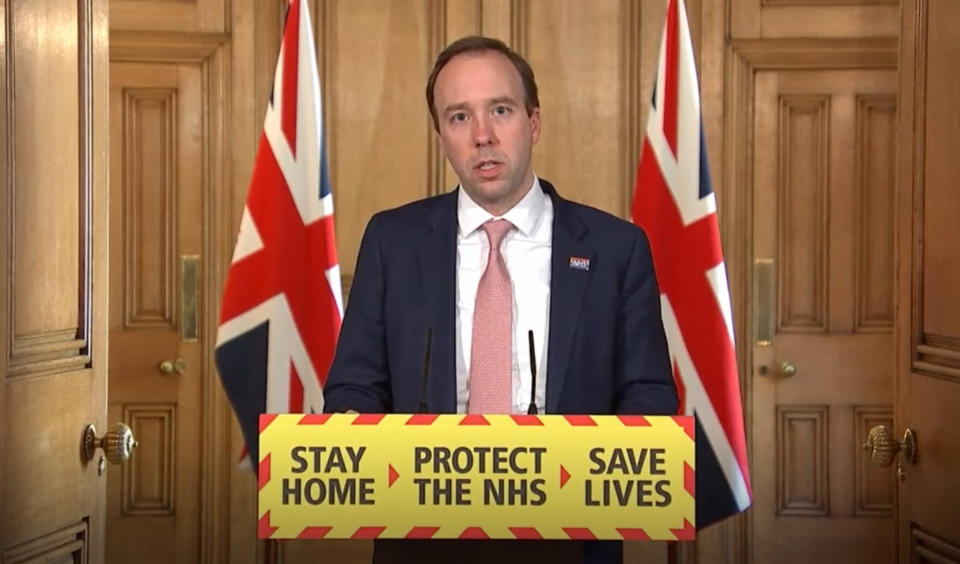Coronavirus: 763 more UK deaths takes total to 18,100
A further 763 hospital deaths related to COVID-19 have been reported in the UK, bringing the nation’s total to 18,100.
There are now also 133,495 confirmed coronavirus cases, up 4,451.
Earlier today, NHS England reported that 665 deaths related to coronavirus have been recorded in English hospitals, bringing the total for that country to 16,272.
Most of those deaths took place between 19 April and 21 April, though 175 happened 1 April and 18 April, and nine occurred in March.
The rise comes as Scotland announced another 77 deaths for a total of 985 and Wales has recorded a further 15 for a total of 624. Northern Ireland is yet to release its figures.
The combined figure for all four nations varies from the UK-wide number from the Department of Health because of differences in accounting.
Around the world, 2.5 million cases have been confirmed and more than 177,000 deaths have been reported, alongside 687,000 recoveries, data from Johns Hopkins University shows.

Latest coronavirus news, updates and advice
Live: Follow all the latest updates from the UK and around the world
Fact-checker: The number of COVID-19 cases in your local area
6 charts and maps that explain how COVID-19 is spreading
Human trials on a coronavirus vaccine are due to start this week, with details for volunteers now online.
People willing to help with the project can help if they live in postcodes in the Bristol, Thames Valley, Southampton and Greater London areas.
Health secretary Matt Hancock said on Tuesday: “In the long run, the best way to defeat coronavirus is through a vaccine.
“After all, this is a new disease, this is uncertain science, but I'm certain we will throw everything we've got at developing a vaccine.”
He admitted the process will be subject to “trial and error”, but said the government would back scientists “to the hilt and give them every resource they need” to develop a working vaccine.

The vaccine has been developed at the University of Oxford's Jenner Institute and Oxford Vaccine Group. Work began in January.
It means the UK joins the US and China in progressing to human trials.
Professor Robin Shattock, from Imperial College London’s Department of Infectious Disease, said the coronavirus is not as tough to target for a vaccine as HIV or influenza.
He told the Today programme on BBC Radio 4: “I think we are very confident that some vaccines will come through and work.
“There are so many groups working on different approaches and the virus is not as difficult a target as some of the things we have seen before.
“The main issue is that it doesn’t seem to be changing very much.
“So it is a target we have in our sights and it is very different from influenza, which changes every year.
“As long as this virus stays relatively stable it will be very easy to lock our sights on it in terms of targeting a vaccine.”
Meanwhile, a government minister has admitted that NHS staff will need to be tested for coronavirus again after initial results proved to be inaccurate.
Care minister Helen Whately told Sky News that staff who received an inaccurate test were being notified.
“My understanding from the clinical advisers is that some of the early tests were evaluated and the evaluation is that they weren't effective enough,” she said on Wednesday morning.
“This is a normal process when you are using a test for an illness when this is a new illness.
“Those that were tested with the test that wasn't up to scratch have been written to and offered another test.”

 Yahoo News
Yahoo News 

